At this time of year, editors of newspaper book sections and literary journals usually invite authors and critics to recommend books for the holidays. The recent blockbuster-sized list of ‘100 best summer reads’ from The Times in the UK must cover books for every type of getaway possible. But are such seasonal lists based on what the author genuinely fancies taking on holiday, or are they to impress others and provide favours to fellow writers?
Even more comprehensive is this week’s ‘100 Best Books of the 21st Century’ in the New York Times, compiled from choices by authors and critics from books published in the past twenty years or so. Inevitably, readers have pointed out the absences - no Sally Rooney, few books in translation, only a smattering of nonfiction. But as
writes in ‘A subjective list’, his own NYT list of ten current favourites is intended to be a personal response. ‘Soon I will be reading books I haven’t read, sometimes haven’t heard of, recommended by writers I admire’, he writes. ‘Isn’t that the point of exercises like this?’So in the spirit of Hornby, and not attempting to predict any future 21st-century classics, here is my own 2024 summer reading list. It’s short, suitcase-friendly and a personal choice of six recent memoirs and novels (there’ll be more nonfiction in my next post). I’d love to know what you’re reading, or plan to read, over the next few months.
David Nicholls, You Are Here (UK, Sceptre)
Like many people, I enjoyed the recent Netflix adaptation of One Day, and the new life that it brought to David Nicholls’s much-loved 2009 novel. That book was notable for its narrative structure, which traced the two protagonists’ story on the same date every year, 15 July or St Swithin’s Day. One Day’s structure is a clever variation on the ‘circadian novel’, in which all the action happens during the course of a single day; a famous example is Mrs Dalloway, published in 1924.
Nicholls’s new bestseller, You Are Here (UK, Sceptre) is scaffolded by a spatial structure, following a walking route that can be traced on a map through Cumbria and Yorkshire. In the novel it’s a lengthy, rain-sodden trek, in which the two lonely main characters slowly get to know one another. Nicholls has a droll, deceptively easy style of writing and is very good at capturing the details of modern life. Appropriately for a novel about walking, I enjoyed listening to the audiobook version of You Are Here while out walking (accompanying my dog around muddy local parks rather than an arduous hike from coast to coast). The gentle rhythm and wry humour of the book made my own trudges a pleasure, and in what must be a tribute to Mrs Dalloway towards the end, there’s even a description of the pleasures of city walking; see the quotation at the end of this post.
Simon Kuper, Impossible City (Profile Books, 2024)
Yesterday was ‘La Fête Nationale’, or Bastille Day, in France, and celebrations must have been particularly special in Paris, where the 2024 Summer Olympics will take place in July and August this year. I probably won’t be taking the Eurostar from London to Paris until all the fuss has died down, but I’m looking forward to reading the FT journalist Simon Kuper’s Impossible City: Paris in the Twenty-First Century. It’s a memoir about living as an immigrant in the city for the past twenty years. Until I dipped into it, I hadn’t realized that the city that was once considered ‘the Navel of the World’ was also the birthplace of modern international sports competitions. ‘It starts in the Grand Amphithéâtre of Sorbonne University,’ Kuper writes,
where in June 1894, Pierre de Frédy, also known as Baron de Coubertin, a small Parisian with a big moustache who was still only in his early thirties, called on 2,000 delegates from around the world to support a revival of the ancient Olympics… Of course they chose Paris as host of the first modern Olympics, in 1900.
I’m also keen to find out more about the ‘Grand Paris’ project, the most ambitious attempt to link the beautiful, much-visited city to its neglected suburbs, which have long been held at arm’s length by the ‘Périphérique’ ring road. Apropos, I enjoyed reading ‘July 14th Bastille Day’ by
recently, and if you’re in Cambridge this summer don’t miss the free exhibition ‘Paris 1924: Sport, Art and the Body’ which opens on 19th July at the Fitzwilliam Museum.Ann Schlee, Rhine Journey Daunt Books (UK) McNally (USA) July 2024
Another novel with European travel at its heart, Rhine Journey was shortlisted for the Booker Prize in 1981. It’s about an encounter that takes place on a river tour in Germany during the hot summer of 1851, when the unmarried, but now independently wealthy, Charlotte Morrison travels with her family.
I am so impressed by the book’s beautiful, spare writing, Schlee’s empathy for her protagonist’s predicament and the brilliant evocation of dangerous undercurrents of passion. It says much about the constraints placed this unmarried English woman and her longing for love set against the underlying tensions of social upheaval in Prussia. As Lauren Groff writes in her introduction, ‘this sense of simmering unrest under the surface of things seeps into her consciousness.’ Schlee’s historical novels are little known today, but Jane Gardam has described them as ‘more advanced, more interested in feminism, for instance, than her contemporaries who write of the twentieth century.’
The writer Lucy Scholes has written a wonderful essay about it here, and Daunt Books and McNally Editions deserve praise for reissuing this evocative, mysterious novel which, since its brief moment of Booker shortlist glory forty years ago, has been largely forgotten (like the fascinating Charlotte Morrison). If you enjoyed AS Byatt’s Possession you will love this.
Natalia Ginzburg Family and Borghesia (Daunt Books, 2024)
In recent years there’s been a revival of interest in books and stories by the Italian writer Natalia Ginzburg (1916-1991). In the UK, Daunt Books has brought out an elegant selection of new translations of her work, including the classic Family Lexicon, first published in Italy in 1963 and which, Ginzburg said, should be read as a novel even though everything in it really happened. (See this excellent New Yorker article about it here.) So I’ll be taking the new Daunt Books edition of two of her novellas, Family and Borghesia translated by Beryl Stockman, on my UK holiday and will enjoy being transported to Italy in my imagination.
Emily Van Duyne, Loving Sylvia Plath (WW Norton, published July 2024 in USA; 23 August 2024 in UK)
Griffin Dunne, The Friday Afternoon Club; A Family Memoir (Atlantic Books, 2024)
I was so intrigued by the photograph on the cover of this family memoir that featured in
’s recent ‘Reading Sibling Stories’ post that I had to rush out and buy it. Since then, The Friday Afternoon Club has had lots of coverage and positive reviews, but I’m trying not to find out too much about it before reading it - I hope - relaxing in a leafy garden this summer. (Below is a link to my interview with Abra about this book - such a pleasure to feature in her podcast series).More book round-ups… and a green space
Other recent book recommendations I’ve enjoyed recently include
’s ‘A Prescription for getting out of a reading rut’; ’s excoriating ‘What even is a book award?’; ’s ‘I'm involved with your book list’ and ’s take on the Best Books of the 21st century (with a glimpse of the NYT’s much contested list).The warm response to the photo below that I shared on Substack Notes this week has been wonderful (click on the image to see the comments). If you’re in Cambridge over the summer, you can book for the free exhibition about British crime fiction, ‘Murder by the book’ and have a glimpse of Cambridge University Library’s beautiful corridors.
Ok, now over to you!
How will you choose your next book? By consulting ‘summer books’ lists or via recommendations from friends? Do you browse the library shelves or ‘front of bookshop’ displays? Is there a ‘bring-and-share’ book box in your neighbourhood, and what have you discovered there? (My mum always finds great free books on a table in her local Co-op).
NEXT TIME: history and biography, and other book suggestions from Cambridge Dining Society readers. Thank you so much for reading!

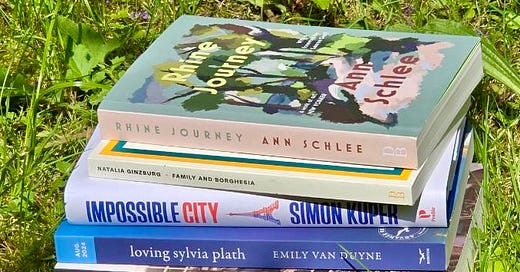



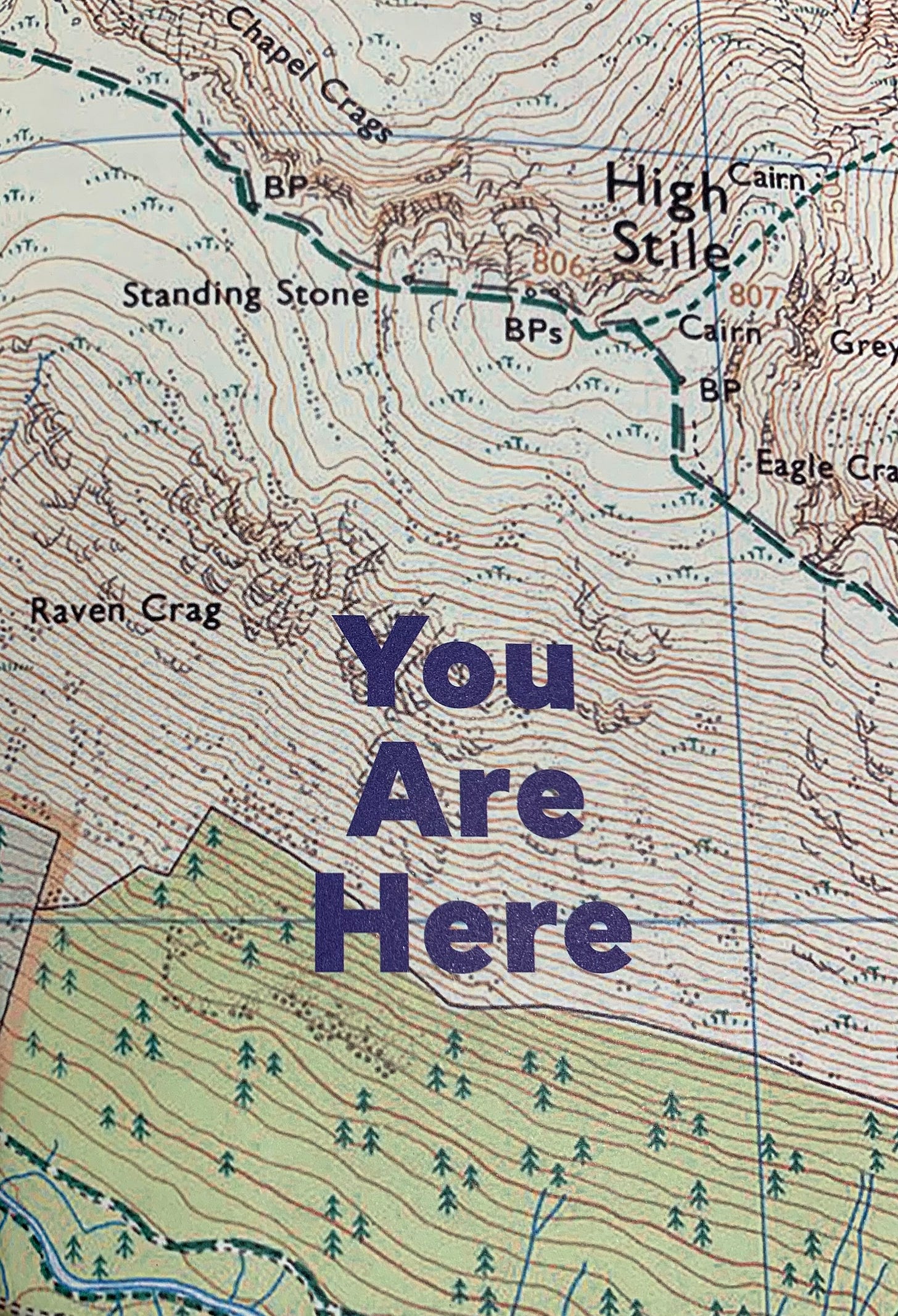
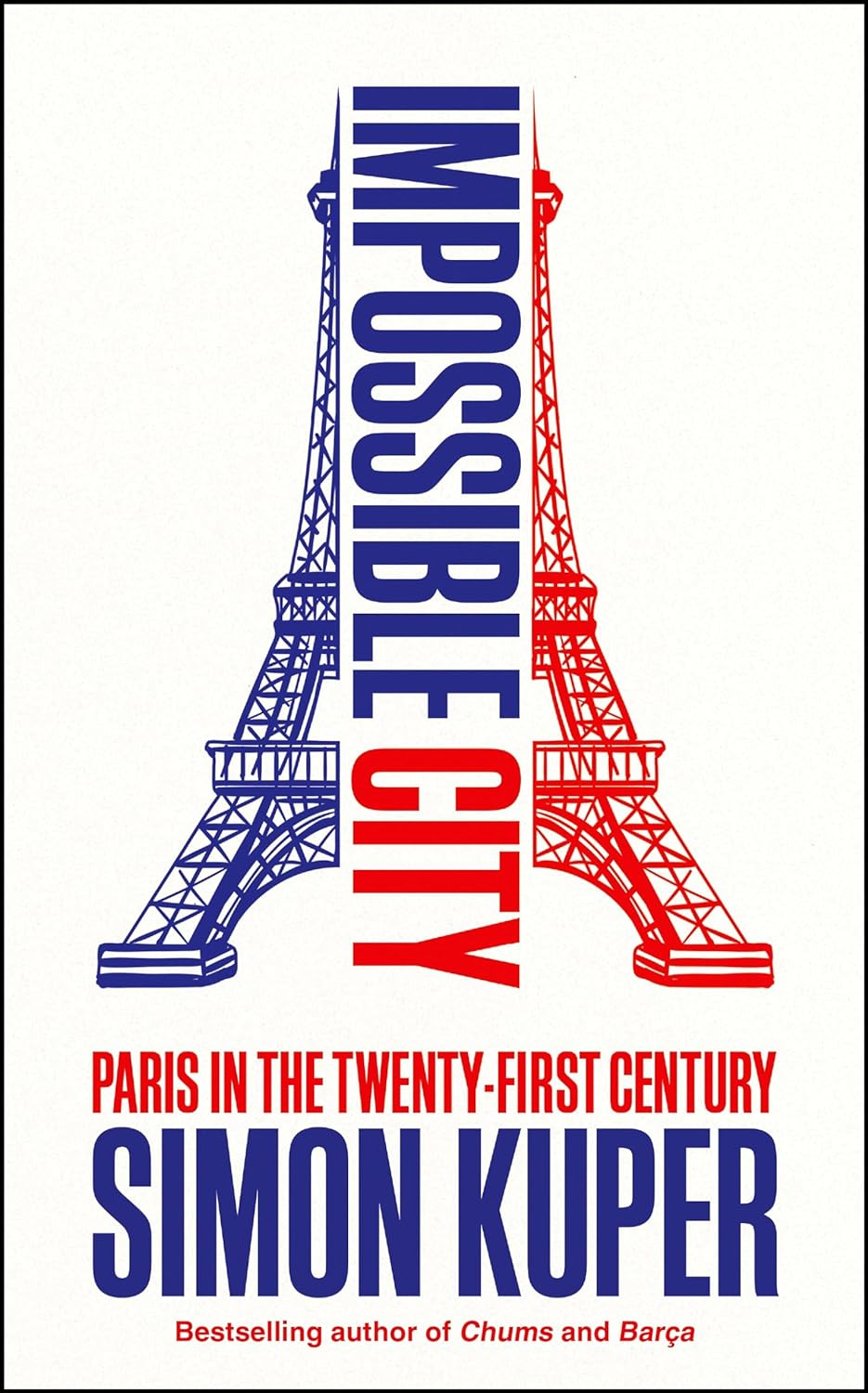
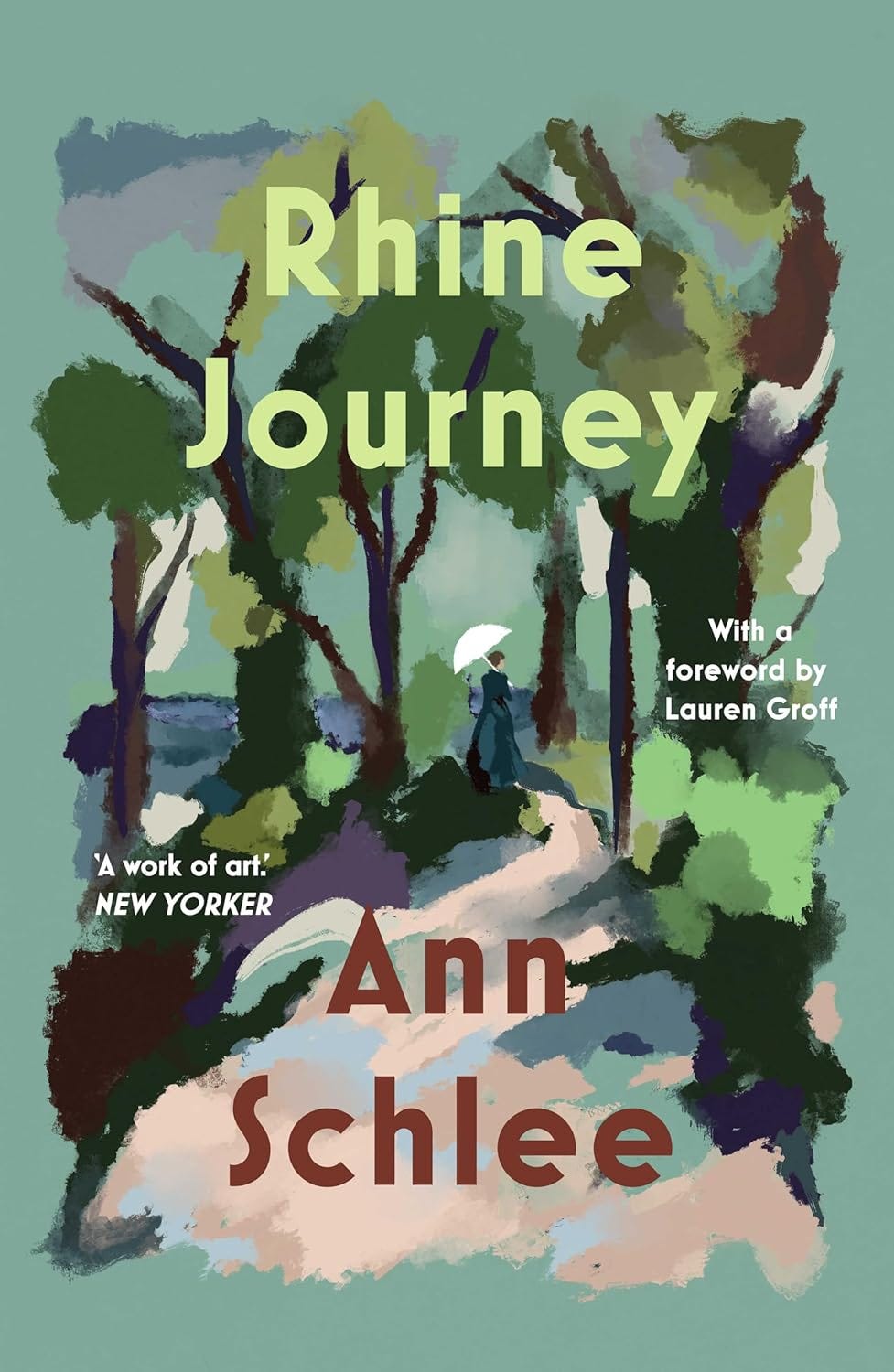
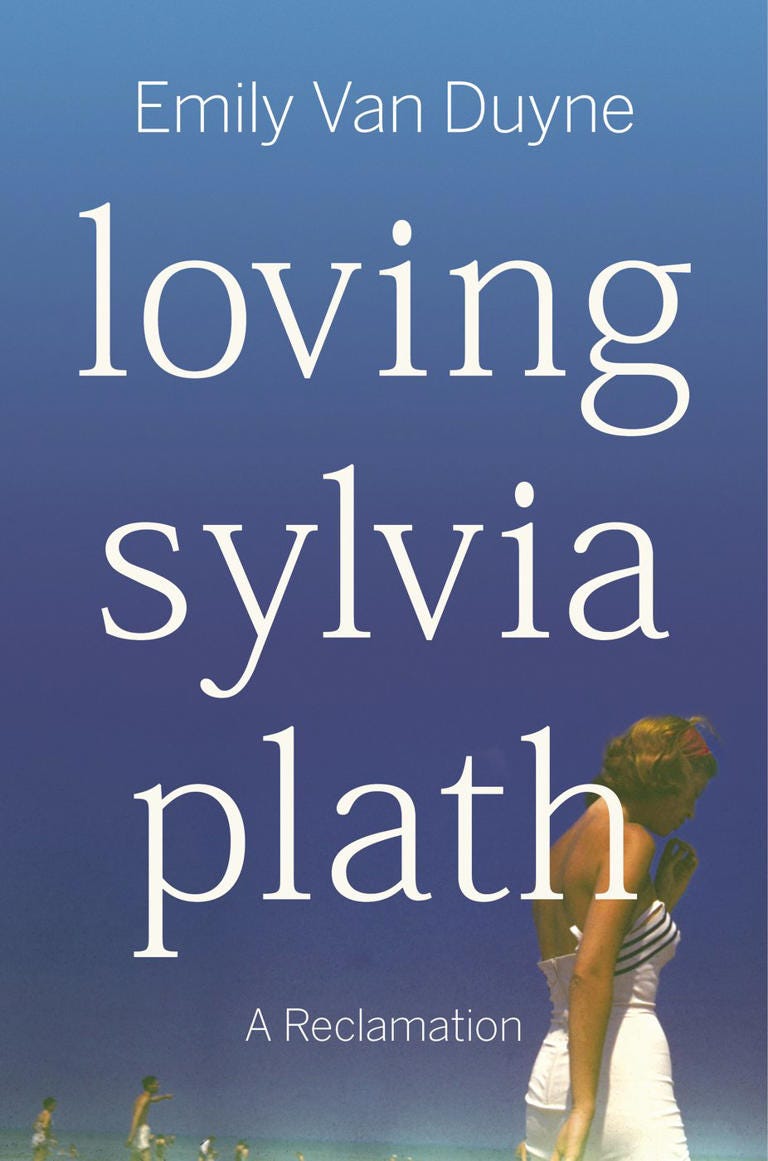
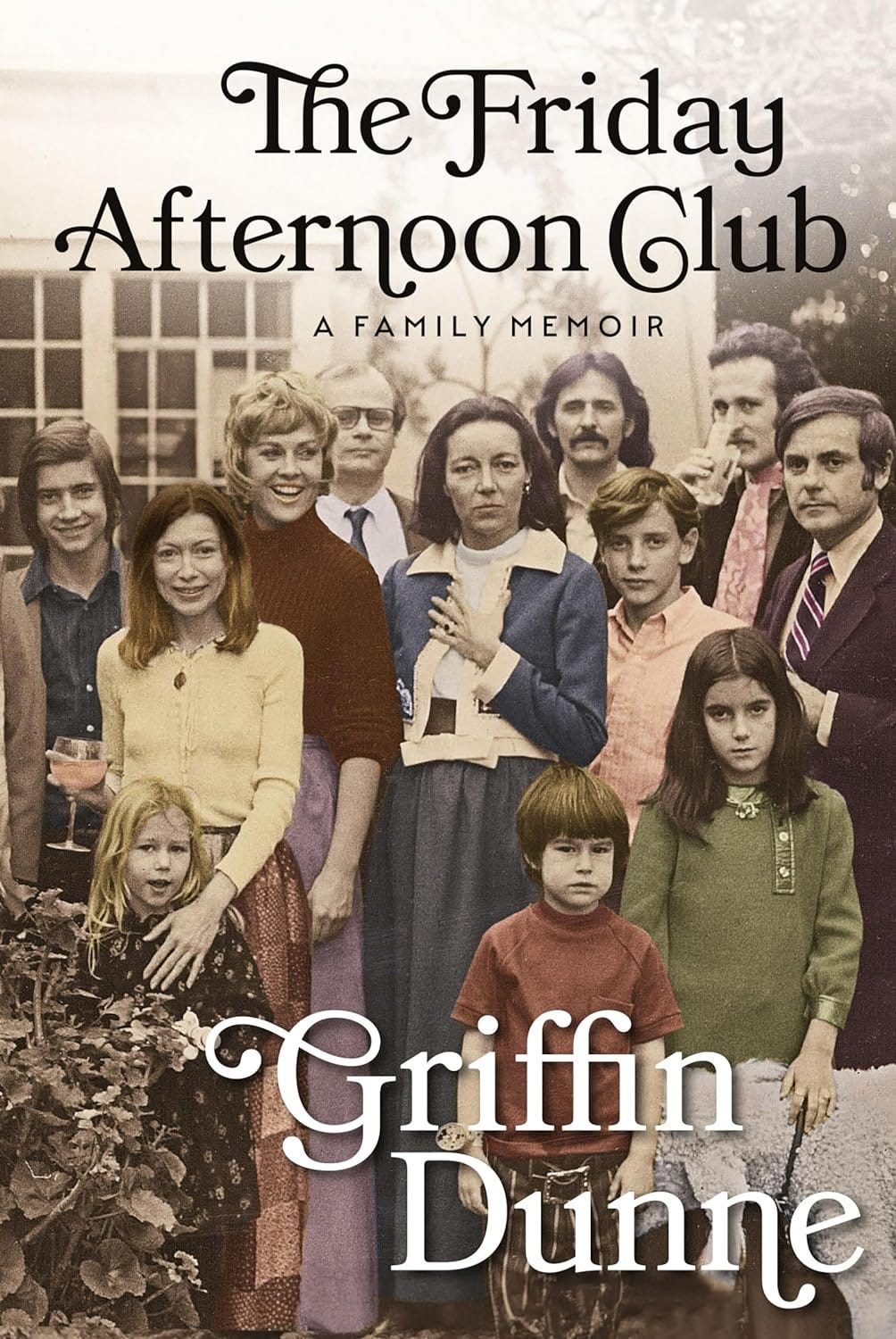


Ann, please make a list of books about Cambridge and walking please.
Loving Sylvia Plath will be my next read! I've been looking forward to its release. Just found out about Rhine Journey today and feel like I have to get it now. My summer reading includes Deborah Levy's The Cost Of Living and Real Estate, Parable of the Sower, Giovanni's Room, a biography of Katherine Mansfield, After Sappho, some Laurie Colwin and Anita Brookner, and various poetry books.